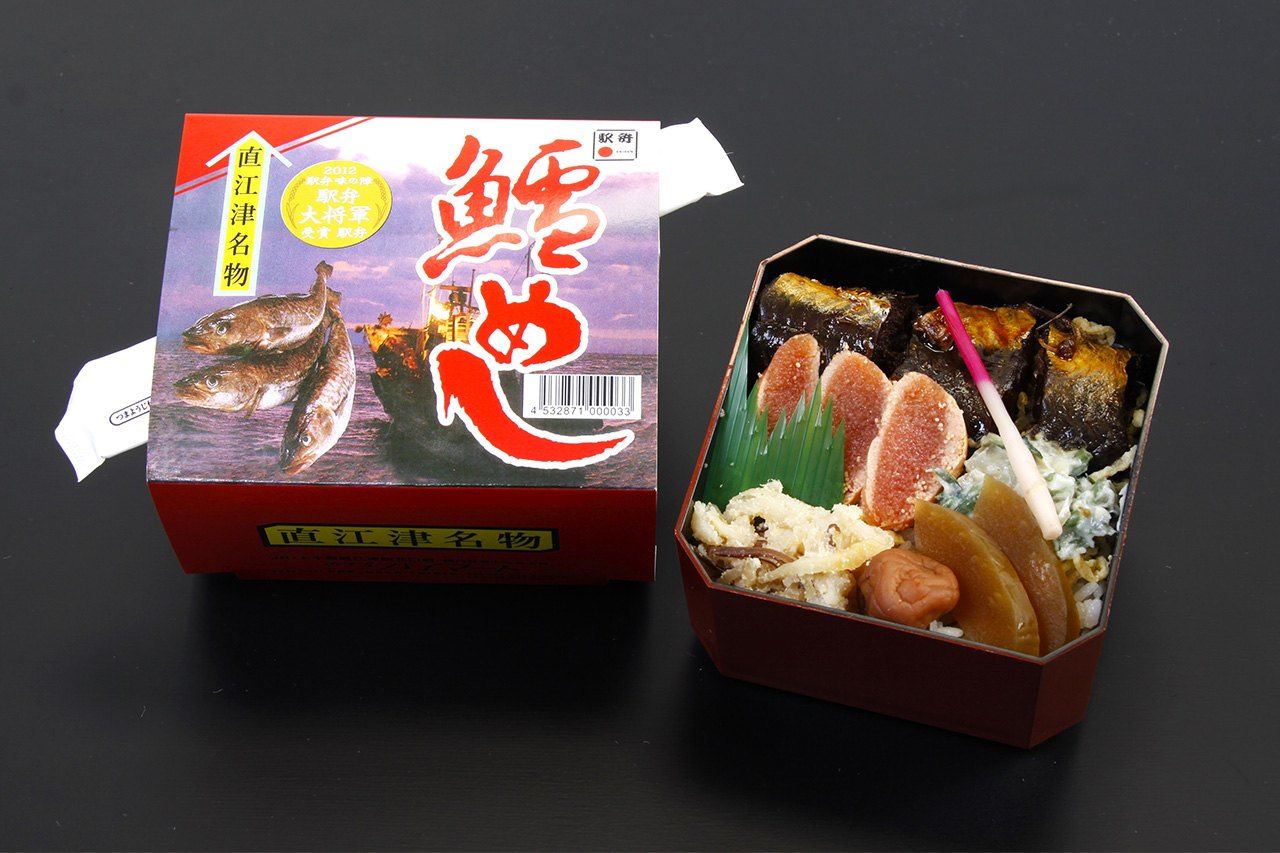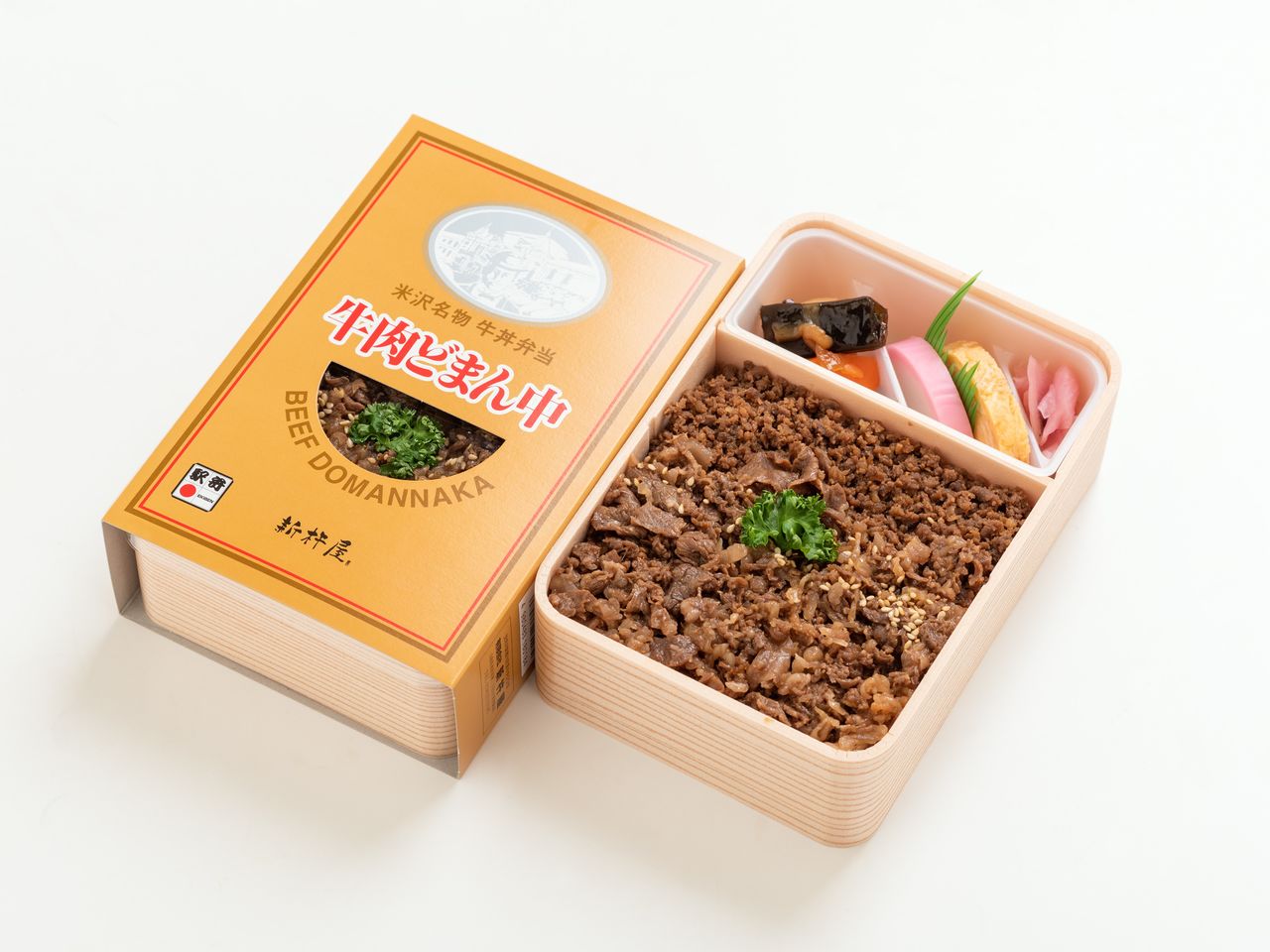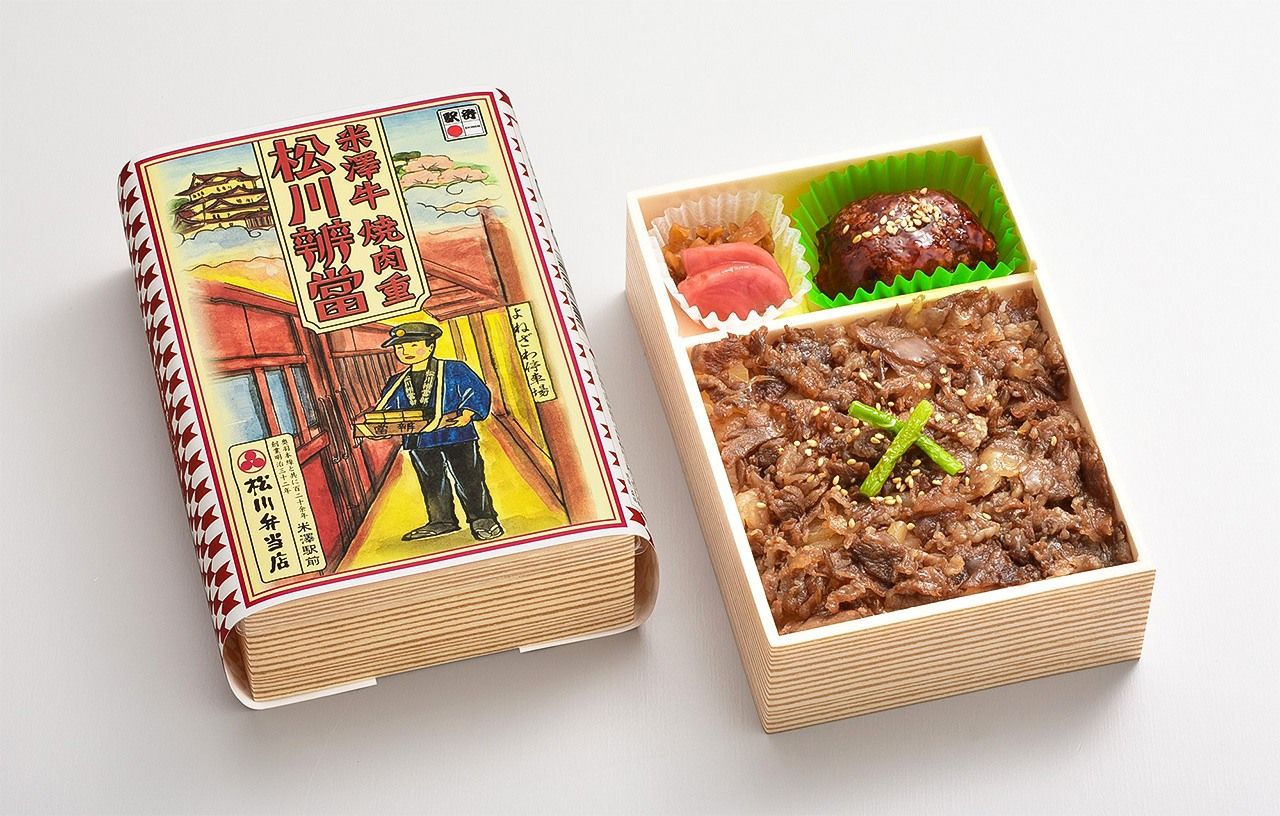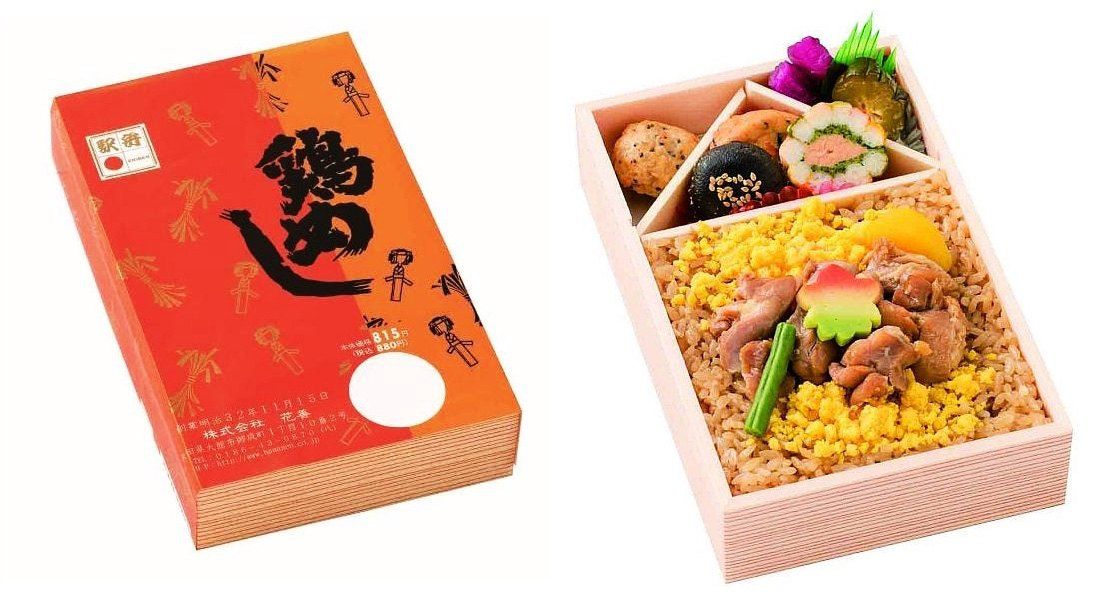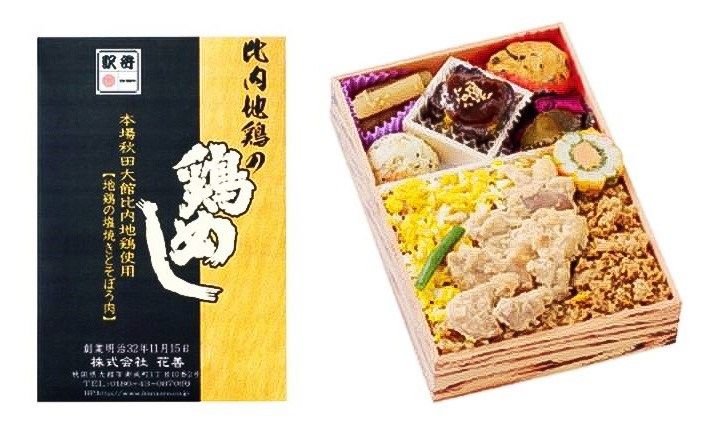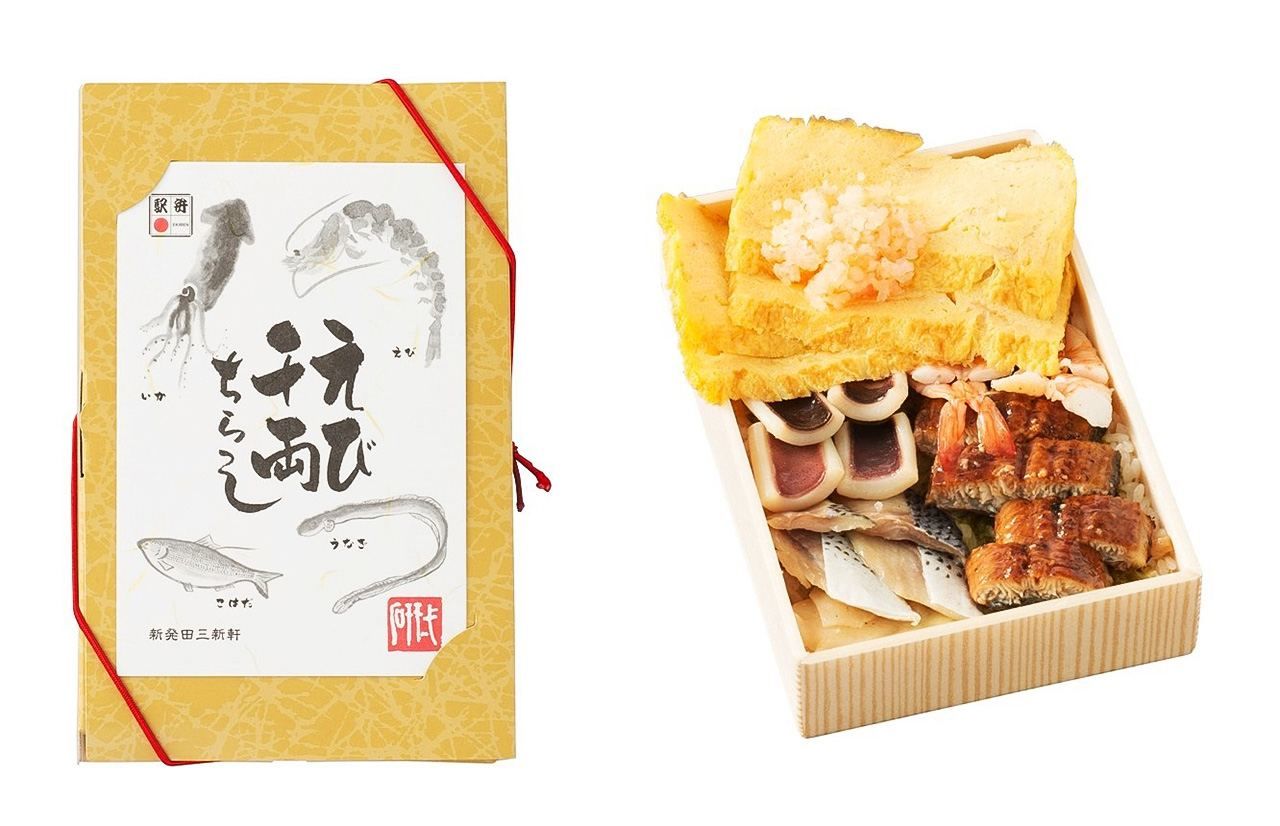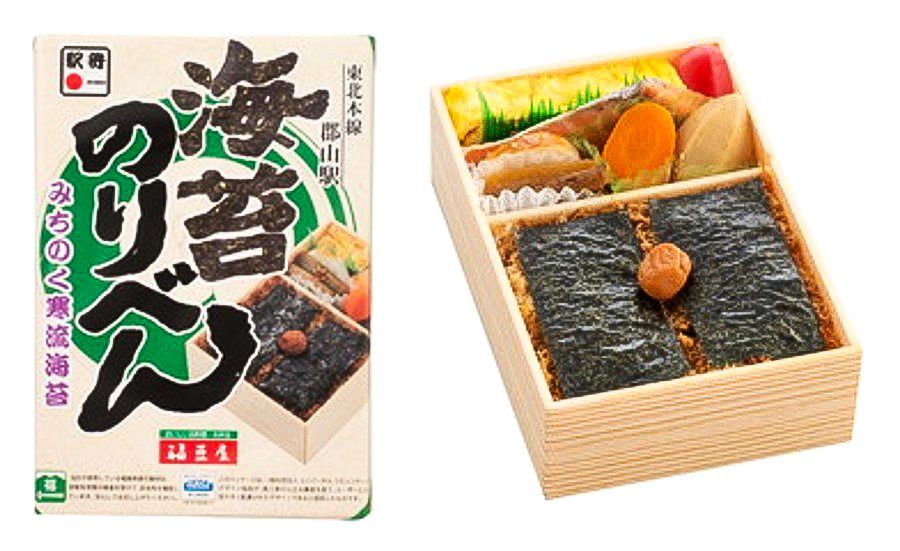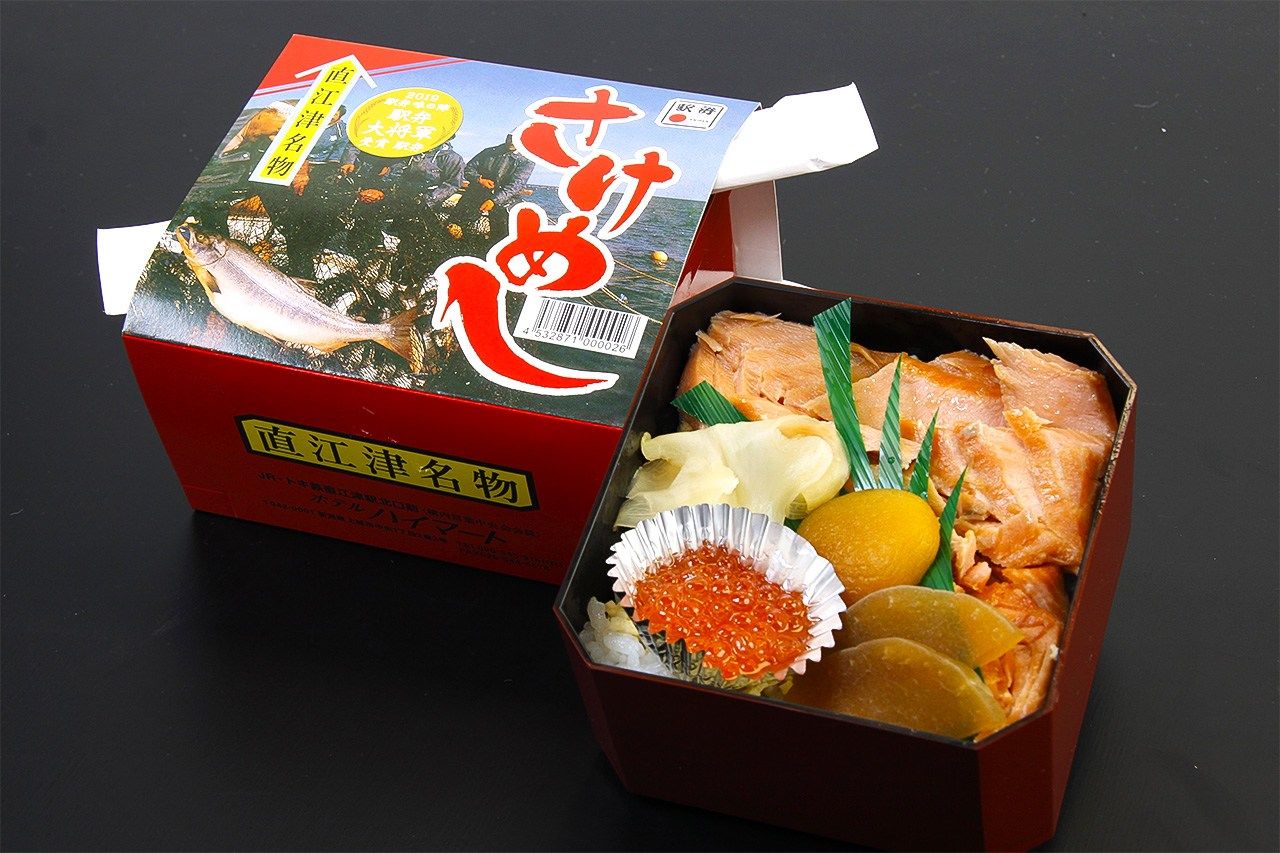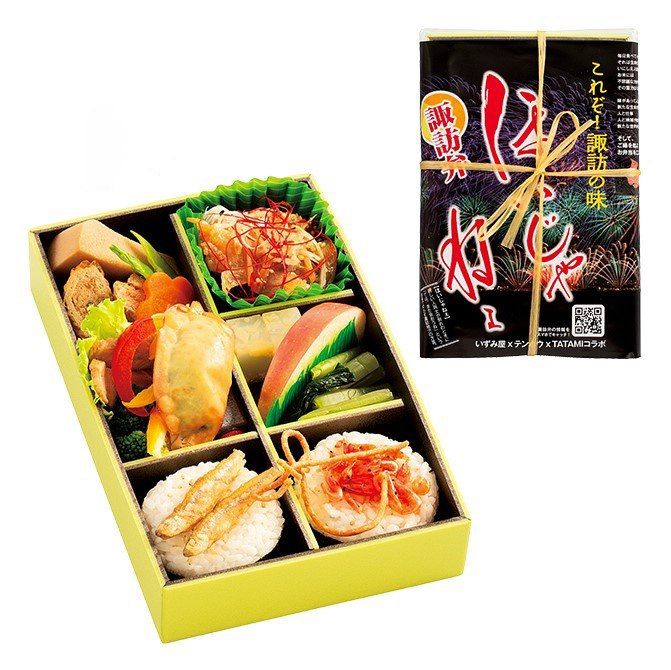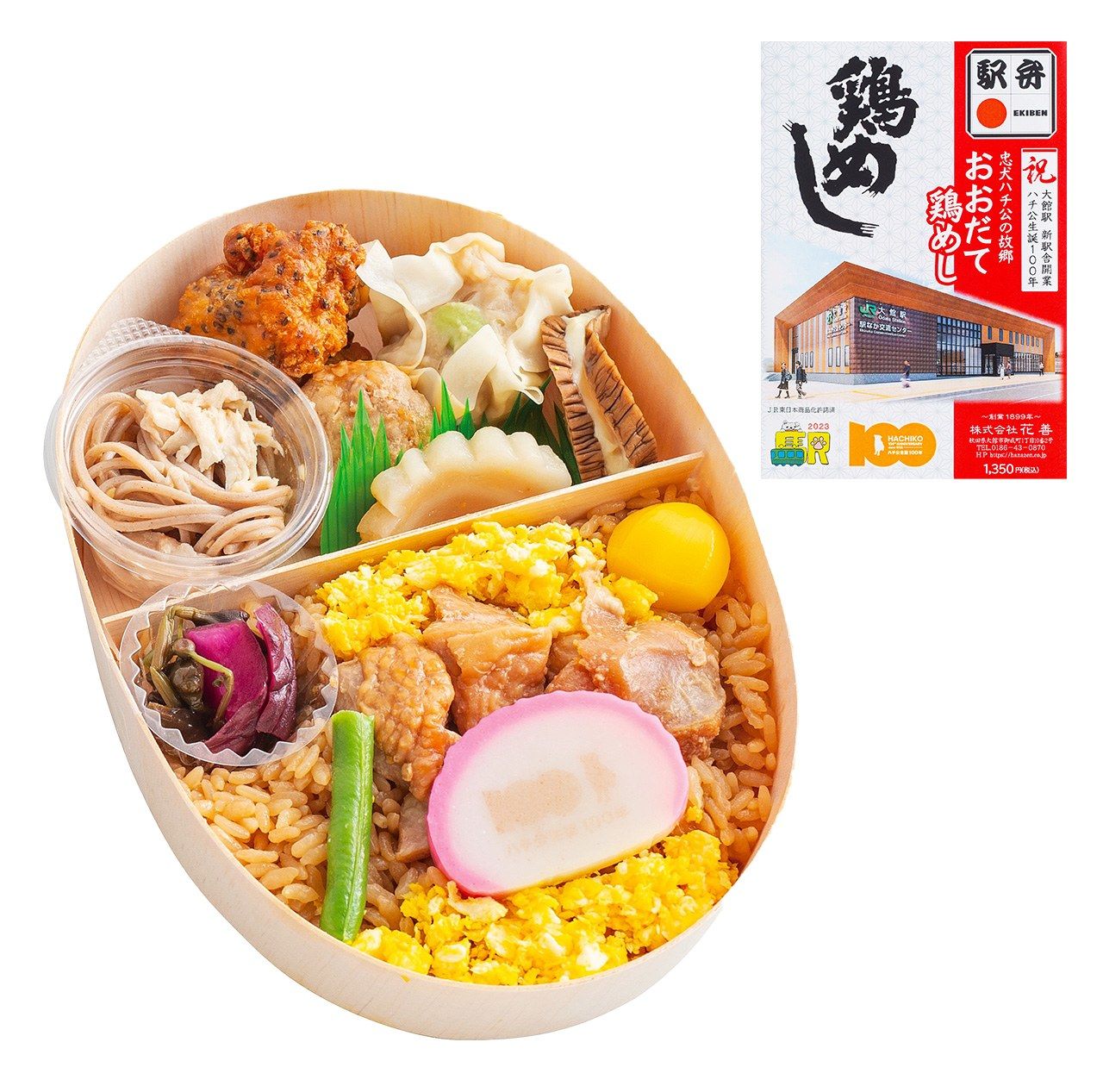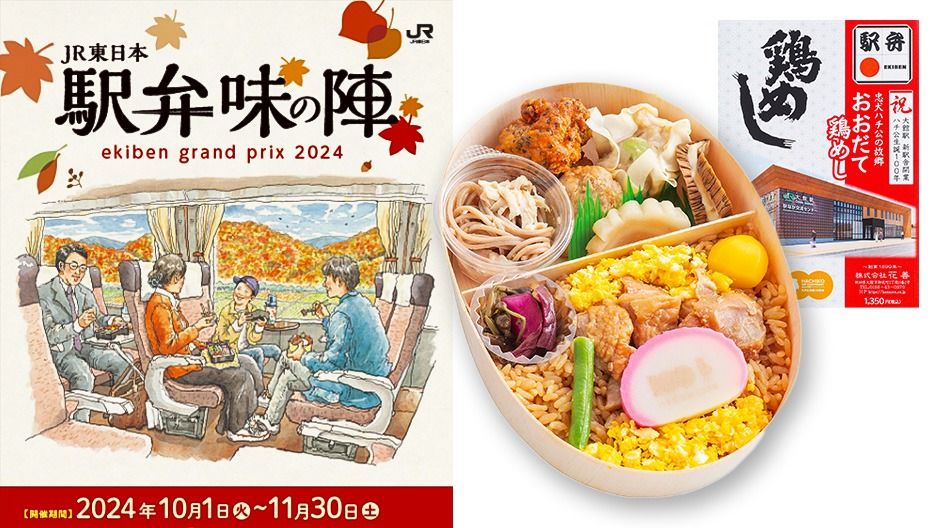
JR’s Fall 2024 “Ekiben” Line-up and a Look at the Boxed Train Meal Hall of Fame
Guide to Japan Food and Drink Travel- English
- 日本語
- 简体字
- 繁體字
- Français
- Español
- العربية
- Русский
Meals on Wheels
Travelers to Japan will almost certainly encounter the ekiben, a portmanteau referring to the ubiquitous bentō boxed meals sold at train stations, or eki. They are so popular that Japan Railways launched its Ekiben Grand Prix in 2012 as a special event marking the thirtieth anniversary of the start of operation of the Jōetsu Shinkansen (bullet train) line and fifteenth anniversary of the Nagano Shinkansen. The event featured 23 fancy ekiben from the cities along these two lines, such as Ōmiya, Takasaki, Niigata and Nagano. Travelers were invited to vote for their favorite ekiben.
The event has been held every autumn since then, and the scope has expanded. This year is the thirteenth Ekiben Grand Prix. Some 11,437 votes were cast in last year’s contest to pick the top train meal, and other awards were conferred in categories including flavor, arrangement, wrapping paper design, and best newcomer.
From this year, JR East, the East Japan Railway Company, is attempting to promote ekiben further, by making frozen ekiben available to purchase online on its JRE Mall website. Since September, the site has been offering popular ekiben from around Japan.
This year, 61 ekiben have been entered for the grand prix, from Hokkaidō in the north to Kagoshima in the south. Of these, 36 are new entries.
Last year’s champion, and three-time grand prize winner, Hanazen from the city of Ōdate, Akita Prefecture, has submitted a new creation this year. It is curiously named “The Very Tough Mother Hen Chicken on Rice,” and retails for ¥1,000. The byline explains that the meat is so chewy it will make your jaw tired, but that it tastes great! One person who tried it recommended the flavorsome meat and pleasurable chewiness.
Shinkineya, an ekiben producer based in Yonezawa, Niigata Prefecture, was runner-up in last year’s contest with its curry-flavored Beef Domannaka, using a local rice variety. This year, they are vying for the top spot, with a salted version, retailing at ¥1,480.
Another producer, Oginoya, based in Annaka, Gunma Prefecture, make the Tōge no Kamameshi ekiben, which features meat and vegetables steamed atop rice. This year the firm has a new version, on sale for ¥1,600. The new ekiben is not your ordinary kamameshi; it features rice cooked in a homemade genovese sauce, chicken grilled with yuzu and pepper for a citrusy tang, and mildly spicy bamboo shoot prepared in special oyster sauce with black pepper.
Everything this year looks great, but it’s worth exploring the winners from previous contests as well.
Round One (2012)
Tara Meshi (¥1,400) by Hotel Heimat of Jōetsu, Niigata Prefecture
An ekiben that has been around since 1992. It is a cod-lover’s delight, with cod (tara) cooked in sweetened soy sauce until almost dry, softening even the bones, and giant cod roe. The rice is locally grown koshihikari, cooked with salted kelp. It also includes melon-cucumber pickled in sake lees, and nozawana, a leaf vegetable, pickled in wasabi.
Round Two (2013)
Beef Domannaka (¥1,480) by Shinkineya of Yonezawa, Niigata Prefecture
A boxed meal originally developed to coincide with the opening of the Yamagata Shinkansen line in 1992. It uses locally grown domannaka rice, cooked to fluffy perfection, and topped with a portion of minced beef and another of stewed beef. The box design includes a “window” that shows off the beef inside. The company also produces a “beef domannaka” pizza!
Round Three (2014)
Yonezawa Gyū Yakiniku-jū Matsukawa Bentō (¥1,780) by Matsukawa Bentō-ten of Yonezawa, Yamagata Prefecture
Matsukawa Bentō-ten was founded in 1899. The ekiben contains beef grilled in a secret aromatic sauce, and meatballs in sweet and sour sauce. It features two varieties of full-flavored Yonezawa beef. The wrapping paper illustration depicts an ekiben seller in the late 1800s, when northern Japan’s Ōu Main Line was first launched.
Round Four (2015)
Tori-Meshi (¥980) by Hanazen of Ōdate, Akita Prefecture
This tori-meshi, or chicken on rice, ekiben has been a best-seller in Ōdate for over 70 years, and is famous along the Ōu Main Line. The rice is 100% Akita komachi, a local variety, cooked in flavored broth, creating the perfect balance for the sweet and spicy stewed chicken.
Round Five (2016)
Hinai Jidori no Tori-Meshi (¥1300) by Hanazen of Ōdate, Akita Prefecture
The local hinai chicken is considered one of Japan’s three finest chicken breeds. This ekiben has a combination of basic salt-grilled and minced chicken. It also includes Hanazen’s popular side dishes, such as eggplant grilled with sweet miso sauce. This was the second year in a row that Hanazen won the grand prix.
Round Six (2017)
Ebi Senryō Chirashi (¥1,580) by Shibata Sanshinken of Niigata, Niigata Prefecture
The ekiben is like a boxed sushi meal, containing kabayaki (eel broiled in a soy-based sauce) and kohada (a fish known as gizzard shad) prepared in soy sauce and wasabi, boiled calamari, and steamed shrimp topped with an egg omelet. The locally grown rice is cooked in vinegar, with shredded kelp to accent the flavor. An attractive ink painting postcard sits atop the box.
Round Seven (2018)
Nori Nori Ben (¥1,200) by Mamefukuya of Kōriyama, Fukushima Prefecture
A two-level nori (dried seaweed sheet) bentō using asakamai rice from Kōriyama. This orthodox ekiben contains egg omelet, grilled salmon, stewed vegetables, and umeboshi (salted plum). In creating this ekiben, the staff had in mind the lunchboxes their busy mothers had lovingly prepared for them in childhood.
Round Eight (2019)
Sake Meshi (¥1,400) by Hotel Heimat of Jōetsu, Niigata Prefecture
A new creation by Hotel Heimat, winners of the first grand prix. For rice, they used koshihikari rice grown in Jōetsu, cooked with salted kelp, topped with grilled silver salmon cooked in a secret sauce, broken up into pieces, and salmon roe. Later, they released a two-level ekiben with cod in one layer and salmon in the other.
Round Nine (2020)
Suwa-ben Hoijanee (¥1,080) by Restaurant Kappō Izumiya of Suwa, Nagano Prefecture
Hoijanee means “See you again” in the Suwa dialect. This ekiben is packed with local delicacies, including Suwa-style gyōza dumplings, deep-fried freshwater smelt, riceballs topped in stewed river shrimp, local Shinshū pork grilled with Suwa miso, pickled nozawana, Shinshū local apple, and quince jelly.
Round Ten (2021)
Wine no Meshi (¥1,500) by Marumasa of Hokuto, Yamanashi Prefecture
Developed by JR East together with long-established ekiben maker Marumasa, showcasing hors d’oeuvre–style dishes that would pair perfectly with the local wine. It is also a play on words, with the local dialect’s wain meshi, meaning something like “Drink up!” It includes nine dishes, such as a gratin made with hōtō, thick noodles eaten in the region, and chicken offal stew.
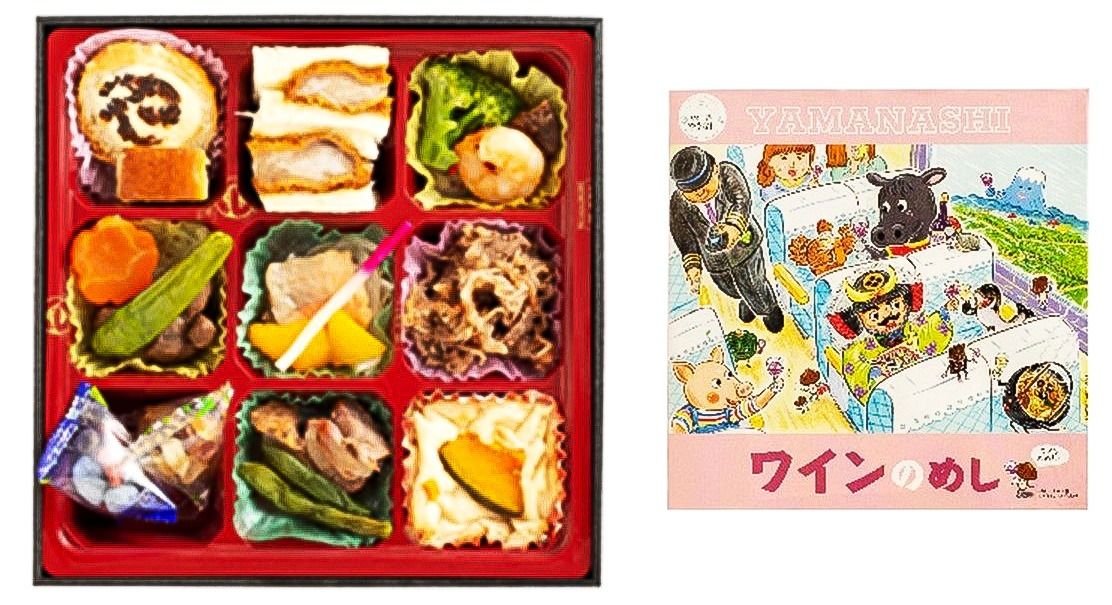
(© East Japan Railway Company)
Round Eleven (2022)
“Tsugaru no Bentō o-Sakana Darake” (¥1,400) by Tasugaru Sōzai of Goshogawara City in Aomori Prefecture
Seven popular varieties of fish from Aomori are prepared using various methods: marinating, baking, boiling, steaming and frying. Salt-grilled salmon, mackerel stewed in local apple juice, flounder steamed with kelp in sweet sauce, ground squid humburg, deep-fried scallops, and so on: a plethora of fish!
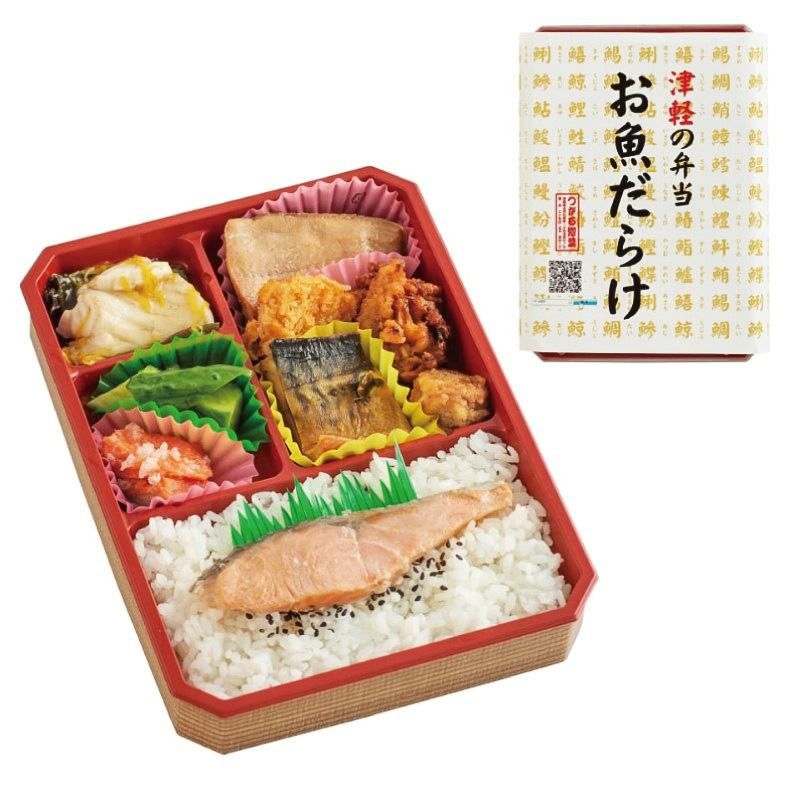
(© East Japan Railway Company)
Round Twelve (2023)
Chūken Hachikō no Furusato Ōdate Tori-Meshi (¥1,350) by Hanazen of Ōdate, Akita Prefecture
An ekiben created to commemorate the opening of the new station building in Ōdate on the Ōu Main Line, along with the famous “faithful dog” Hachikō, whose statue is a meeting point outside Shibuya Station in Tokyo, but who originally came from near Ōdate, Akita Prefecture. The Tori-Meshi ekiben is based on Hanazen’s famous chicken and rice boxed meal, packed full of local specialties such as hinai chicken and smoked daikon radish. Hanazen is a three-time winner of the top ekiben title, after previously winning in 2015 and 2016.
(Originally written in Japanese. Banner photo: Promotion poster for the 2024 Ekiben Grand Prix, at right, together with the 2023 winner. © JR East.)

